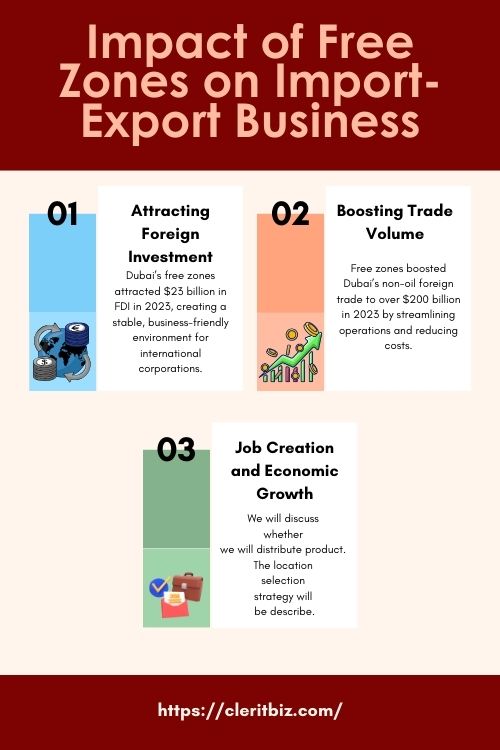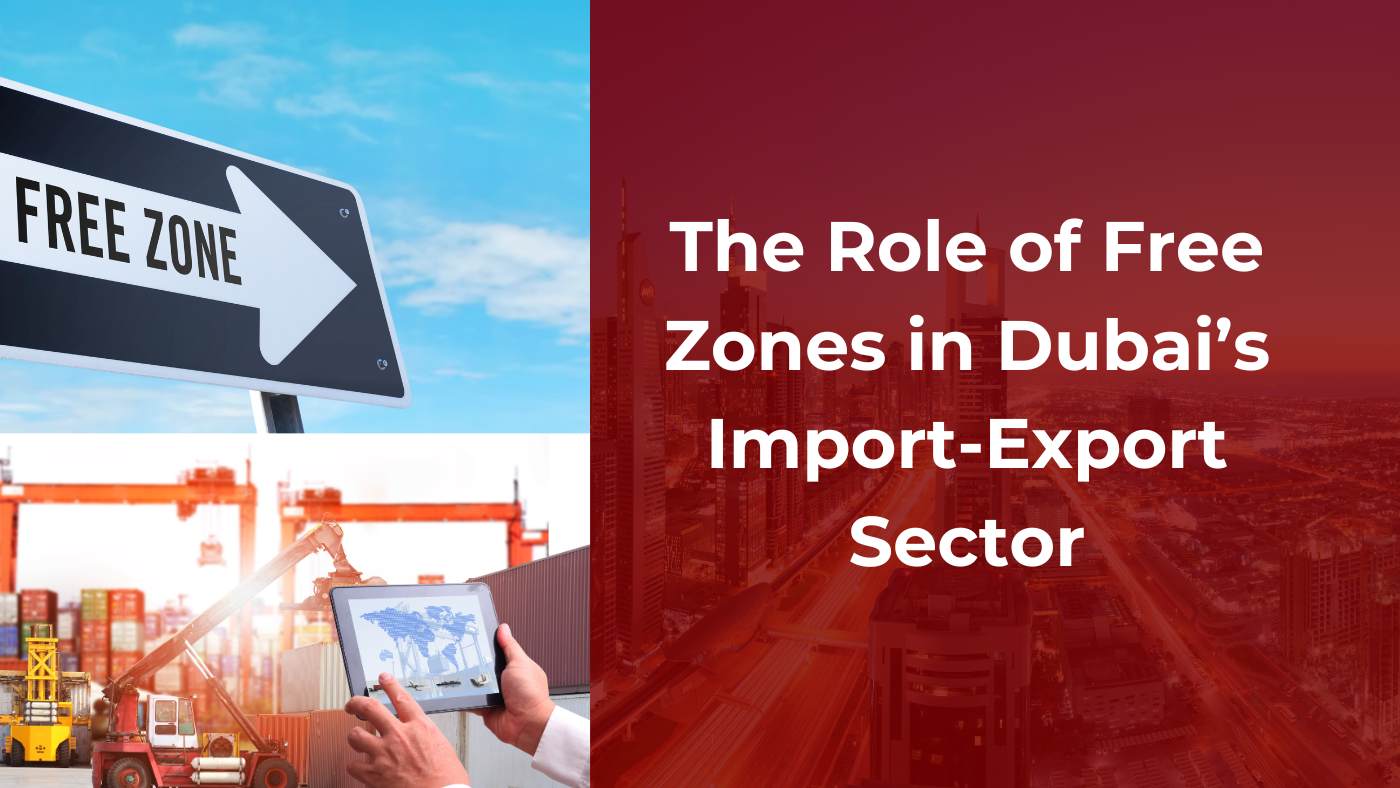Dubai’s free zones are crucial to the success of the UAE’s import-export sector, serving as dynamic hubs that drive international trade and commerce. These free zones offer a range of strategic advantages, from tax incentives and streamlined regulations to cutting-edge infrastructure and logistical support. By creating a business-friendly environment, Dubai’s free zones not only attract global enterprises but also, consequently, enhance the efficiency of the import-export business in Dubai’s free zone.
This blog will help you through what the free zone in Dubai is, the role of free zones in Dubai’s import-export sector, the impact of Dubai’s free zones on the import-export business, and much more.
What are Free Zones in Dubai?
Free zones are designated areas where businesses can operate with exemptions from certain local regulations and taxes. Companies established in these zones typically enjoy 100% foreign ownership, allowing investors to fully control their businesses without the need for a local partner. Additionally, free zones offer significant tax advantages, including exemptions from import and export duties, corporate taxes, and personal income taxes, which further boost business growth.
How Dubai’s Freezone Helps Import Export Business
Strategic Location and Infrastructure
Dubai’s strategic location as the gateway between Europe, Asia, and Africa, assisted by world-class port and airport facilities, plays a significant role in its success.
For example:
- Jebel Ali Port is the largest man-made harbor in the world and ranks among the top 10 container ports globally by volume, handling over 14 million TEUs (Twenty-foot Equivalent Units) annually.
- Al Maktoum International Airport is projected to become the world’s largest airport by area, with a capacity to handle over 200 million passengers and 12 million tons of cargo annually once fully operational.
Dubai’s free zones, such as the Jebel Ali Free Zone (JAFZA) and Dubai Airport Freezone (DAFZA), offer advanced infrastructure and streamlined customs procedures.
These features enhance the efficiency of logistics operations and provide companies with a competitive edge in accessing markets across three continents.
Tax Incentives and Business-Friendly Environment
Dubai’s free zones offer a highly favorable environment for business growth, attracting entrepreneurs and multinational corporations.
Key benefits include:
- Zero percent income and corporate tax for a period of up to 50 years, renewable.
- 100% foreign ownership without the need for a local partner.
The Dubai government’s business approach is evident in the rapid growth of startups across various industries.
For instance, the Dubai Multi Commodities Centre (DMCC) has been recognized as the world’s leading free zone generating over 60,000 jobs.
Impact of Free Zones on Import-Export Business

Attracting Foreign Investment
Dubai’s free zones have been significant in attracting foreign direct investment (FDI) to the region. In 2023, Dubai attracted $23 billion in FDI, with a substantial portion of this investment flowing into its free zones.
By offering a stable and business-friendly environment, these zones have become a magnet for international corporations seeking to establish or expand their operations in the Middle East.
Boosting Trade Volume
Dubai’s free zones have significantly boosted the UAE’s trade volumes by streamlining trade operations and enhancing efficiency.
In 2023, Dubai’s non-oil foreign trade exceeded $200 billion, with free zones playing a pivotal role in facilitating this volume by offering advanced facilities and reducing operational costs.
Job Creation and Economic Growth
The free zones have become vibrant hubs of employment, providing a wide range of job opportunities. For example, JAFZA alone supports over 135,000 jobs. The economic activity within these free zones generates significant impacts across related sectors such as retail, hospitality, and transportation.
The expansion of retail outlets, development of hospitality services, and enhanced transportation infrastructure are direct results of the thriving business environment within these zones.
Dubai’s Prominent Free Zones
- Dubai Airport Freezone (DAFZA): Focused on logistics and aviation, serving over 2,500 companies.
- Jebel Ali Free Zone (JAFZA): One of the world’s largest free zones, concentrating on trade and logistics, with over 8,000 businesses.
- Dubai Media City (DMC): Oriented towards the media and entertainment industry, housing over 1,400 companies.
- Dubai Internet City (DIC): Core focus on technology and e-commerce businesses, with more than 1,600 companies.
- Dubai Multi Commodities Centre (DMCC): Specializes in commodities trading and related services housing over 21,000 companies.
We have highlighted the essential role of Dubai’s free zones, focusing on their impact on the import-export business in Dubai and the broader economic landscape.
By understanding these free-zones and their benefits, businesses can leverage strategic advantages to achieve global success and drive growth in the Dubai free zone import export business.

